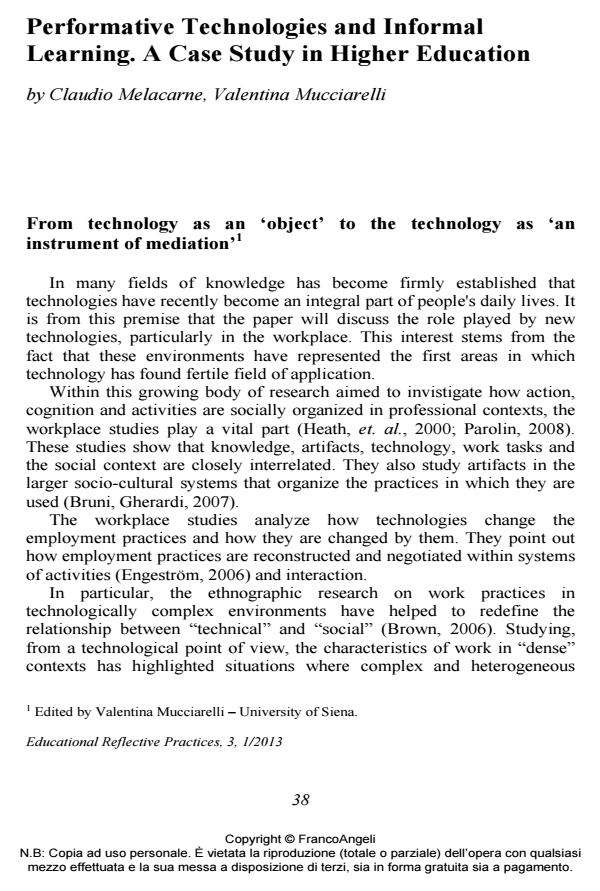Performative Technologies and Informal Learning. A Case Study in Higher Education
Journal title EDUCATIONAL REFLECTIVE PRACTICES
Author/s Claudio Melacarne
Publishing Year 2013 Issue 2013/1
Language English Pages 21 P. 38-58 File size 316 KB
DOI 10.3280/ERP2013-001004
DOI is like a bar code for intellectual property: to have more infomation
click here
Below, you can see the article first page
If you want to buy this article in PDF format, you can do it, following the instructions to buy download credits

FrancoAngeli is member of Publishers International Linking Association, Inc (PILA), a not-for-profit association which run the CrossRef service enabling links to and from online scholarly content.
This paper is focused on the impact of the technologies in workplace. The research is inspired by the perspective of activity theory and show how the technological mediation has to be supported by immaterial elements to become an learning experience. The research is a case study focused on the innovation processes started in a Department of Education with the recent reform of Italian University. Underlining the relationship between action, tasks, tools and meanings, the reform could be described as an opportunity to support the learning organization and the artefacts used to improve this reform could be interpreted as ‘boundary object’.
Claudio Melacarne, Performative Technologies and Informal Learning. A Case Study in Higher Education in "EDUCATIONAL REFLECTIVE PRACTICES" 1/2013, pp 38-58, DOI: 10.3280/ERP2013-001004